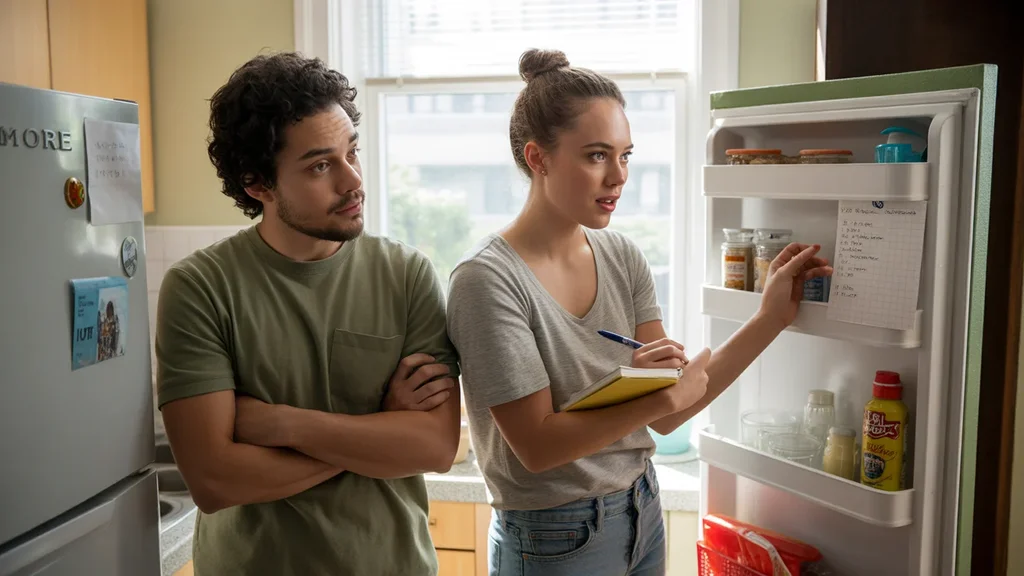
Budgeting Smarter in Moore
Whether you’re a new mover or long-time resident, estimating your monthly expenses in Moore, Oklahoma is key to financial planning. In Moore, housing and electricity often make up more than 55% of a household’s budget. Depending on your lifestyle, your monthly budget in Moore can look very different. Here are some typical examples.
What Real Budgets Look Like in Moore
To illustrate how expenses break down for different households, consider these three residents:
| Expense | Jasmine ($3,000/mo) | Sam & Elena ($7,000/mo) | The Ortiz Family ($9,500/mo) |
|---|---|---|---|
| Rent/Mortgage | $1,100 | $1,800 | $2,400 |
| Utilities | $180 | $280 | $450 |
| Food | $400 | $800 | $1,200 |
| Transportation | $120 | $400 | $600 |
| HOA/Fees | $0 | $150 | $250 |
| Miscellaneous | $600 | $1,400 | $1,900 |
| Savings | $600 | $2,170 | $2,700 |
These estimates reflect common lifestyle costs in Moore. All income figures are expressed as gross monthly income (pre-tax).
Biggest Cost Drivers
As you can see, housing tends to be the largest expense, especially for homeowners. Rent for a typical 1-bedroom in Moore averages around $1,100, while a family-sized home might have a $2,400 monthly mortgage payment.
Utilities are another significant cost, driven largely by seasonal heating and cooling needs. In Moore, the cost of utilities can rise substantially in summer due to air conditioning use. Many homes also have additional HOA fees, which can add $150-$300 to the monthly total.
Transportation costs vary based on household size and commute distance. Moore residents who work in Oklahoma City and rely on personal vehicles should budget at least $400 per month for gas, insurance, and maintenance. However, public transportation in Moore can provide savings for some commuters.
Tips to Stretch Your Budget Further
While Moore’s cost of living is relatively affordable compared to other major metros, there are still plenty of ways to save. Shopping at discount grocery stores like Aldi or Walmart Neighborhood Market can significantly cut your food costs in Moore. Enrolling in OG&E’s SmartHours program can also help reduce summer electric bills.
🏆 Tip: Check for utility rebates in Moore to offset cooling costs during the hot summer months. The City of Moore offers a $50 credit for installing new energy efficient air conditioners.
FAQs About Monthly Budgets in Moore
- Can you live in Moore on $3,000/month? Yes, $3,000 per month is a livable wage for a single person in Moore, as long as you budget carefully. Expect to spend around $1,100 on rent, $400 on food, and $120 on transportation, leaving about $1,380 for utilities, insurance, savings and discretionary spending.
- What’s a realistic rent budget for Moore? Renters should aim to spend no more than 30% of gross income on housing. For an income of $3,000/month, that equates to a rent budget of $900. In neighborhoods like Downtown Moore, rent might exceed $1,000/month for a 1BR apartment.
- What’s a good budget for $4,000/month in Moore? For $4,000 in gross monthly income, set aside $1,200 for rent, $200 for utilities, $500 for food, $200 for transportation, $800 for miscellaneous costs, and $1,100 for savings. Adjust as needed based on your lifestyle.
Planning Your Next Step
Use the example budgets above as a starting point for estimating your own cost breakdown in Moore. Whether you’re budgeting $3,000 per month or $9,000, it’s important to track your spending and look for savings opportunities. With smart planning, you can make the most of your monthly income while living comfortably in Moore.
